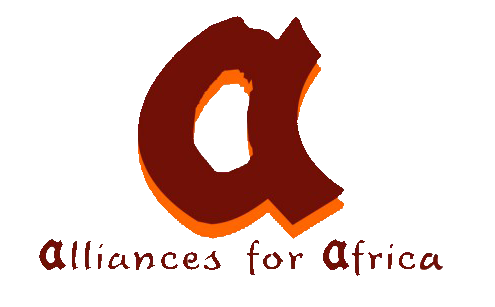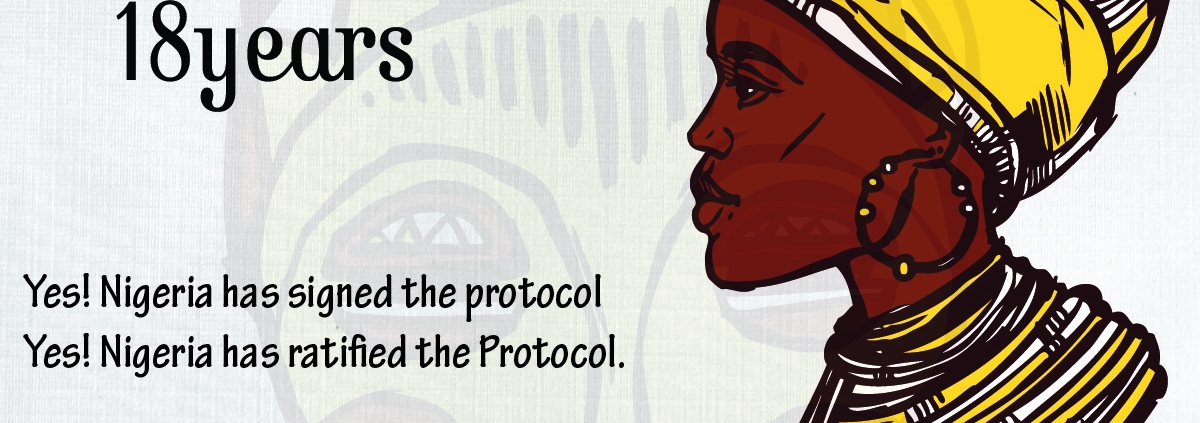Maputo Protocol @ 18: The Journey Continues
The Protocol to the African Charter on Human and Peoples’ Right on the Rights of Women in Africa also known as the Maputo Protocol is an International human rights document for the protection of women and girls in Africa.
It is a comprehensive legal framework that not only holds African government to account in event of violation of women’s right, but also gives women the right to take part in political processes, social and political equality with men, improved autonomy in their reproductive health decisions, and an end to female genital mutilation (African Union, 2003).
It was adopted by the African Union in Maputo, Mozambique in 2003 in the form of a protocol to the African Charter on Human and Peoples’ Rights (adopted in 1981, but only enacted in 1986).
The protocol has as its provisions, right to participation in political and decision-making process, protection of women in armed conflicts, protection of women living with disability, widow’s right, elimination of harmful practices among other contents of the 25 articles making up the legal instrument.
As at July 2020, out of the 55 member countries in the African Union, 49 have signed the protocol and 42 have ratified and domesticated the protocol. The AU states that have neither signed nor ratified the Protocol yet are Botswana, Egypt, and Morocco. The states that have signed but not yet ratified are Burundi, the Central African Republic, Chad, Eritrea, Madagascar, Niger, the Sahrawi Arab Democratic Republic, Somalia, South Sudan, and Sudan.
However, 18 years after the adoption of the Maputo protocol, progress have been relatively slow, owing to the lack of domestication of this law in member states as well as some countries yet to sign and ratify it. Member States that have ratified the Protocol, rarely submit reports on the progress of the domestication and implementation of the Protocol thereby presenting difficulties in tracking the progress on commitment and other challenges. Nigeria is among African states yet to domesticate and implement provisions of the protocol.
A recent meeting convened in November 2020 by the African Union Commission Women, Gender and Development Directorate in collaboration with the Gender, Peace and security programme of AUC peace and security department and the Solidarity for African Women Rights, with African Union experts responsible for gender, equality and women’s affair, civil societies and other women and youth organizations to deliberate and evaluate the status of the ratification, domestication and implementation of the Protocol to the African Charter on Human and Peoples’ Rights on the Rights of Women in Africa.
It was discovered that despite countries enacting laws against sexual and gender-based violence as well as harmful cultural practices, some were yet to ratify and implement the Maputo protocol. This gapping realization was made worst by the advent of the covid-19 which worsened exposure of women to more detrimental situations.
Other challenges highlighted were issues of conservative governments, pluralistic legal systems; resistance from strong faith-based groups; absence of, or lack of clarity on ratification procedures; the prioritization of peace and reconciliation in countries in active or emerging from civil strife; concerns with reproductive rights provisions and the provisions on rights related to marriage among other challenges.
In the light of the above, progress to domesticating this protocol in Africa member states have continued to be very slow. However, in speeding up the process of ratification, domestication, implementation and reporting on the Maputo protocol to advance the gender agenda in line with best practices, Alliances for Africa recommends the following:
- Enforce the decision of the ECOWAS Court to ensure that women have their full compensation as directed by court for the gender-based violence.
- Popularize the protocol in all states of the federation among lawyers with particular reference to female lawyers who are critical key to advancing justice for women and girls.
- Strengthen civil society movement targeted at strategic advocacy for the domestication of the Maputo protocol.
- Ensure that all States pass the Violence Against Persons (Prohibition) Act into Law.
- Protect displaced women and girls and ensure that they have access to basic rights, improved services within the IDP camps and sanction the perpetrators as well ensure maximum protection for women in conflict prone areas.
AfA pledge to continue to work with the commission, and particularly the special rapporteur on the rights of women in Africa on implementing the Maputo Protocol in Africa.
ABOUT ALLIANCES FOR AFRICA (AFA), is an African led feminist organization which focuses on human rights, peace and sustainable development Owerri Imo State Nigeria. AfA aims at enhancing and strengthening on a sustainable basis, local, national, sub-regional and regional institutions in Africa that are active in the monitoring, advancing, promoting and protecting of human rights, peace and sustainable development initiatives.





Leave a Reply
Want to join the discussion?Feel free to contribute!